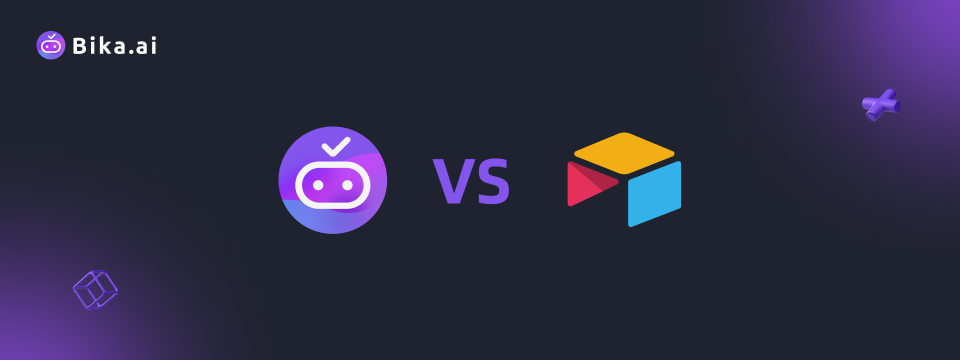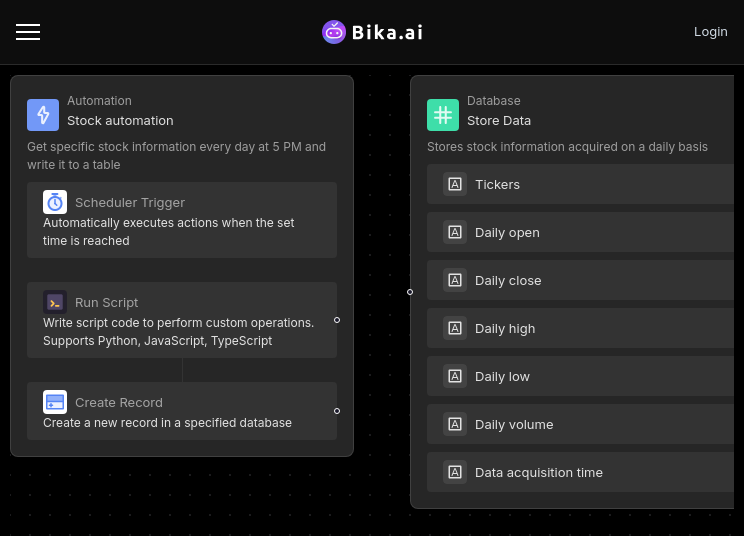
In the world of finance and investment, accurately tracking daily stock performance is crucial. But this task comes with its fair share of challenges. Many turn to traditional tools like Airtable to manage and analyze this data. However, as the landscape evolves, new players like Bika.ai are entering the scene, offering innovative solutions.

When comparing Airtable and Bika.ai in the context of daily stock performance tracking, several key differences emerge.
| Feature | Airtable | Bika.ai |
|---|---|---|
| Pricing | Free provided, paid plans from $20/user/month | Free provided, paid plans from $9.99/user/month |
| Platform Type | No-code database | No-code AI automation database |
| Ease of Use | Base structure is geeky for non-tech users | Directory tree is easy to use and user-friendly for general users |
| Records per Database | Up to 125,000 records per base for Business plan | Up to 1,500,000 records per database for Team plan |
| Automation | Basic automation capabilities with limited triggers and actions | Advanced automation capabilities with extensive triggers and actions |
| Template | Templates don’t include automation capability; no automation publish and share | Plenty of plug-and-play AI automated templates with preset content; supports automation publish and share |
| Storage | 100 GB of attachments per base | 800 GB per space |
| API | Limited APIs | API-first platform making every feature an integration endpoint for automation |
It's clear that Bika.ai has some distinct advantages over Airtable in this domain.
Bika.ai has conducted in-depth research and gathered practical feedback on the daily stock performance tracking scenario. This has allowed them to tailor their solution to the specific needs of the audience and market.
The Automated Stock Data Retrieval (Python) template in Bika.ai is a prime example. It simplifies the process of fetching and organizing stock data, helping users save time and improve their investment decisions.

Automating daily stock performance tracking brings significant value to team collaboration and individual investors. It leads to increased efficiency, time savings, reduced errors, customization options, convenience, and cost savings.
Professionals such as financial analysts, investment managers, and data scientists can greatly benefit from this. The use cases are extensive, including but not limited to better decision-making, real-time data analysis, and seamless integration with other financial tools.

The process of using Bika.ai's Automated Stock Data Retrieval (Python) template is straightforward.
First, install the template into your Bika Space Station. If you have multiple projects, you can install it multiple times.
Then, obtain an API key from the Alpha Vantage website.
Next, configure the automation task by entering the edit interface. Here, you can modify the trigger conditions and execution actions, as well as set the reminder time and adjust the stock ticker.
After configuration, test the automation task to ensure it's working as expected.
Finally, view and manage the retrieved stock data in the dedicated database.
Switching from Airtable to Bika.ai is a straightforward process.
Start by exporting your data from Airtable in a CSV or Excel format.
Next, sign up for Bika.ai and use its data import tools to transfer your data.
Then, set up your automation templates in Bika.ai to start reaping the benefits of its advanced AI automation immediately.
It's time to embrace the future of daily stock performance tracking with Bika.ai!





